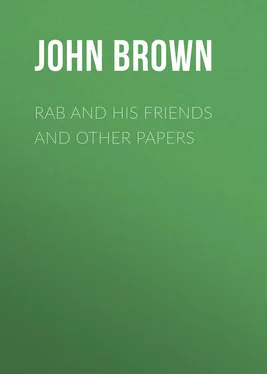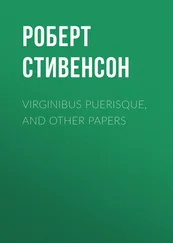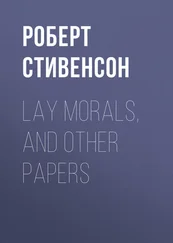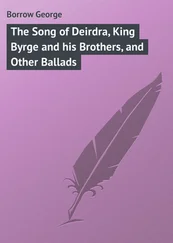John Brown - Rab and His Friends and Other Papers
Здесь есть возможность читать онлайн «John Brown - Rab and His Friends and Other Papers» — ознакомительный отрывок электронной книги совершенно бесплатно, а после прочтения отрывка купить полную версию. В некоторых случаях можно слушать аудио, скачать через торрент в формате fb2 и присутствует краткое содержание. Жанр: foreign_antique, foreign_prose, на английском языке. Описание произведения, (предисловие) а так же отзывы посетителей доступны на портале библиотеки ЛибКат.
- Название:Rab and His Friends and Other Papers
- Автор:
- Жанр:
- Год:неизвестен
- ISBN:нет данных
- Рейтинг книги:5 / 5. Голосов: 1
-
Избранное:Добавить в избранное
- Отзывы:
-
Ваша оценка:
- 100
- 1
- 2
- 3
- 4
- 5
Rab and His Friends and Other Papers: краткое содержание, описание и аннотация
Предлагаем к чтению аннотацию, описание, краткое содержание или предисловие (зависит от того, что написал сам автор книги «Rab and His Friends and Other Papers»). Если вы не нашли необходимую информацию о книге — напишите в комментариях, мы постараемся отыскать её.
Rab and His Friends and Other Papers — читать онлайн ознакомительный отрывок
Ниже представлен текст книги, разбитый по страницам. Система сохранения места последней прочитанной страницы, позволяет с удобством читать онлайн бесплатно книгу «Rab and His Friends and Other Papers», без необходимости каждый раз заново искать на чём Вы остановились. Поставьте закладку, и сможете в любой момент перейти на страницу, на которой закончили чтение.
Интервал:
Закладка:
From this moment Toby was an altered dog. Pluck at first sight was lord of all; from that time dated his first tremendous deliverance of tail against the door, which we called "come listen to my tail." That very evening he paid a visit to Leo, next door's dog, a big, tyrannical bully and coward, which its master thought a Newfoundland, but whose pedigree we knew better; this brute continued the same system of chronic extermination which was interrupted at Lochend, – having Toby down among his feet, and threatening him with instant death two or three times a day. To him Toby paid a visit that very evening, down into his den, and walked about, as much as to say "Come on, Macduff!" but Macduff did not come on, and henceforward there was an armed neutrality, and they merely stiffened up and made their backs rigid, pretended each not to see the other, walking solemnly round, as is the manner of dogs.
Toby worked his new-found faculty thoroughly, but with discretion. He killed cats, astonished beggars, kept his own in his own garden against all comers, and came off victorious in several well-fought battles; but he was not quarrelsome or foolhardy. It was very odd how his carriage changed, holding his head up, and how much pleasanter he was at home. To my father, next to William, who was his Humane Society man, he remained stanch. He had a great dislike to all things abnormal, as the phrase now is. A young lady of his acquaintance was calling one day, and, relating some distressing events, she became hysterical. Of this Toby did not approve, and sallying from under my father's chair, attacked his friend, barking fiercely, and cut short the hysterics better than any sal volatile or valerian. He then made abject apologies to the patient, and slunk back to his chair.
And what of his end? for the misery of dogs is that they die so soon, or, as Sir Walter says, it is well they do; for if they lived as long as a Christian, and we liked them in proportion, and they then died, he said that was a thing he could not stand.
His exit was lamentable, and had a strange poetic or tragic relation to his entrance. My father was out of town; I was away in England. Whether it was that the absence of my father had relaxed his power of moral restraint, or whether through neglect of the servant he had been desperately hungry, or most likely both being true, Toby was discovered with the remains of a cold leg of mutton, on which he had made an ample meal; 5 5 Toby was in the state of the shepherd boy whom George Webster met in Glenshee, and asked, "My man, were you ever fou'?" "Ay aince" – speaking slowly, as if remembering – "Ay, aince." "What on?" "Cauld mutton!"
this he was endeavouring to plant as of old, in the hope of its remaining undiscovered till to-morrow's hunger returned, the whole shank-bone sticking up unmistakably. This was seen by our excellent and Rhadamanthine grandmother, who pronounced sentence on the instant; and next day, as William was leaving for the High School, did he in the sour morning, through an easterly haur , behold him "whom he saved from drowning," and whom, with better results than in the case of Launce and Crabb, he had taught, as if one should say "thus would I teach a dog," – dangling by his own chain from his own lamp-post, one of his hind feet just touching the pavement, and his body preternaturally elongated.
William found him dead and warm, and falling in with the milk-boy at the head of the street, questioned him, and discovered that he was the executioner, and had got twopence, he – Toby's every morning's crony, who met him and accompanied him up the street, and licked the outside of his can – had, with an eye to speed and convenience, and a want of taste, not to say principle and affection, horrible still to think of, suspended Toby's animation beyond all hope. William instantly fell upon him, upsetting his milk and cream, and gave him a thorough licking, to his own intense relief; and, being late, he got from Pyper, who was a martinet, the customary palmies, which he bore with something approaching to pleasure. So died Toby; my father said little, but he missed and mourned his friend.
There is reason to believe that by one of those curious intertwistings of existence, the milk-boy was that one of the drowning party who got the penny of the twopence.
WYLIE
Our next friend was an exquisite shepherd's dog; fleet, thin-flanked, dainty, and handsome as a small greyhound, with all the grace of silky waving black and tan hair. We got her thus. Being then young and keen botanists, and full of the knowledge and love of Tweedside, having been on every hilltop from Muckle Mendie to Hundles-hope and the Lee Pen, and having fished every water from Tarth to the Leithen, we discovered early in spring that young Stewart, author of an excellent book on natural history, a young man of great promise and early death, had found the Buxbaumia aphylla , a beautiful and odd-looking moss, west of Newbie heights, in the very month we were that moment in. We resolved to start next day. We walked to Peebles, and then up Hay-stoun Glen to the cottage of Adam Cairns, the aged shepherd of the Newbie hirsel, of whom we knew, and who knew of us from his daughter, Nancy Cairns, a servant with Uncle Aitken of Callands. We found our way up the burn with difficulty, as the evening was getting dark; and on getting near the cottage heard them at worship. We got in, and made ourselves known, and got a famous tea, and such cream and oat cake! – old Adam looking on us as "clean dementit" to come out for "a bit moss," which, however, he knew, and with some pride said he would take us in the morning to the place. As we were going into a box bed for the night, two young men came in, and said they were "gaun to burn the water." Off we set. It was a clear, dark, starlight frosty night. They had their leisters and tar torches, and it was something worth seeing – the wild flame, the young fellows striking the fish coming to the light – how splendid they looked with the light on their scales, coming out of the darkness – the stumblings and quenchings suddenly of the lights, as the torch-bearer fell into a deep pool. We got home past midnight, and slept as we seldom sleep now. In the morning Adam, who had been long risen, and up the Hope with his dog, when he found we had wakened, told us there were four inches of snow, and we soon saw it wras too true. So we had to go home without our cryptogamie prize.
It turned out that Adam, who was an old man and frail, and had made some money, was going at Whitsunday to leave, and live with his son in Glasgow. We had been admiring the beauty and gentleness and perfect shape of Wylie, the finest collie I ever saw, and said, "What are you going to do with Wylie?"
"'Deed," says he, "I hardly ken. I canna think o' selling her, though she's worth four pound, and she'll no like the toun." I said, "Would you let me have her?" and Adam, looking at her fondly, – she came up instantly to him, and made of him – said, "Ay, I wull, if ye'll be gude to her;" and it was settled that when Adam left for Glasgow she should be sent into Albany Street by the carrier.
She came, and was at once taken to all our hearts – even grandmother liked her; and though she was often pensive, as if thinking of her master and her work on the hills, she made herself at home, and behaved in all respects like a lady. When out with me, if she saw sheep in the streets or road, she got quite excited, and helped the work, and was curiously useful, the being so making her wonderfully happy.
And so her little life went on, never doing wrong, always blythe and kind and beautiful. But some months after she came, there was a mystery about her: every Tuesday evening she disappeared: we tried to watch her, but in vain, she was always off by nine P.M., and was away all night, coming back next day wearied and all over mud, as if she had travelled far. She slept all next day. This went on for some months, and we could make nothing of it. Poor dear creature, she looked at us wistfully when she came in, as if she would have told us if she could, and was especially fond, though tired.
Читать дальшеИнтервал:
Закладка:
Похожие книги на «Rab and His Friends and Other Papers»
Представляем Вашему вниманию похожие книги на «Rab and His Friends and Other Papers» списком для выбора. Мы отобрали схожую по названию и смыслу литературу в надежде предоставить читателям больше вариантов отыскать новые, интересные, ещё непрочитанные произведения.
Обсуждение, отзывы о книге «Rab and His Friends and Other Papers» и просто собственные мнения читателей. Оставьте ваши комментарии, напишите, что Вы думаете о произведении, его смысле или главных героях. Укажите что конкретно понравилось, а что нет, и почему Вы так считаете.












